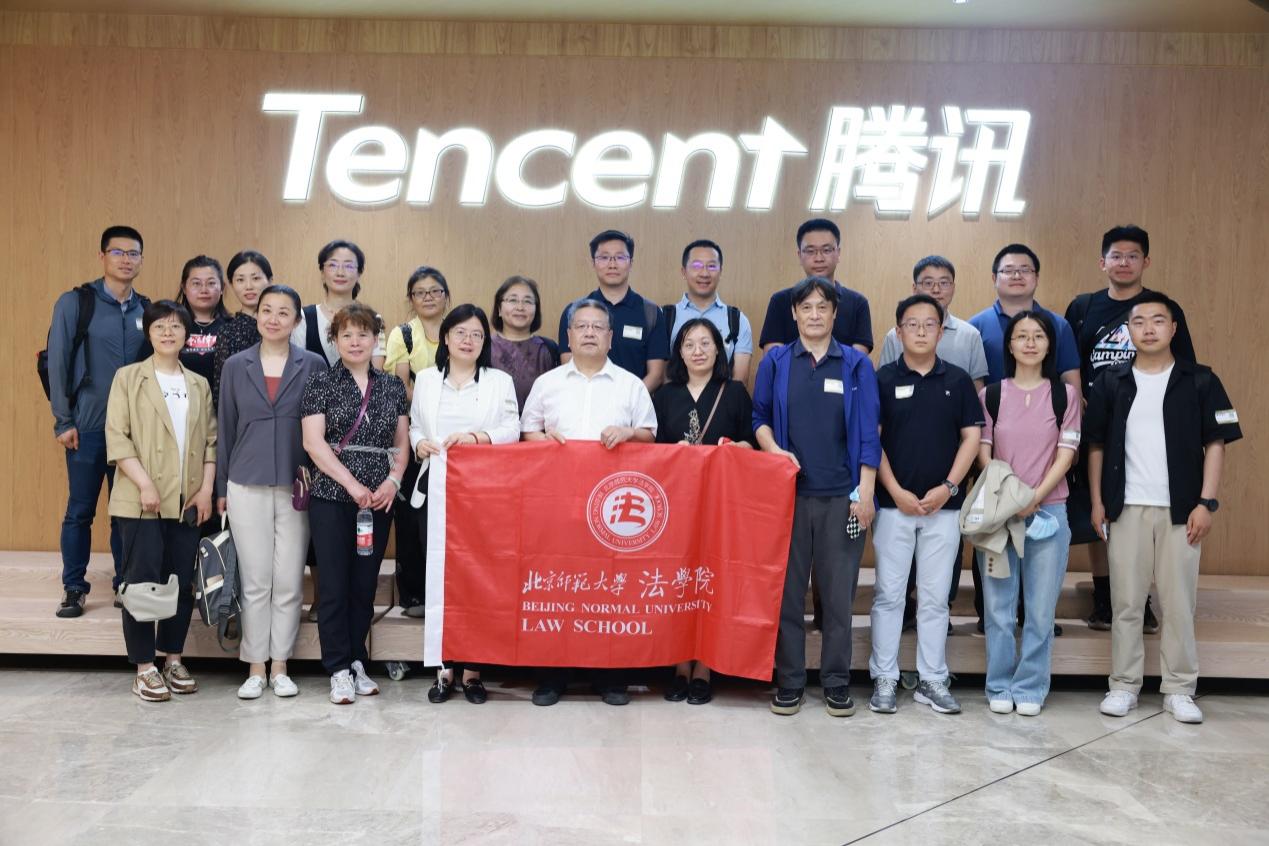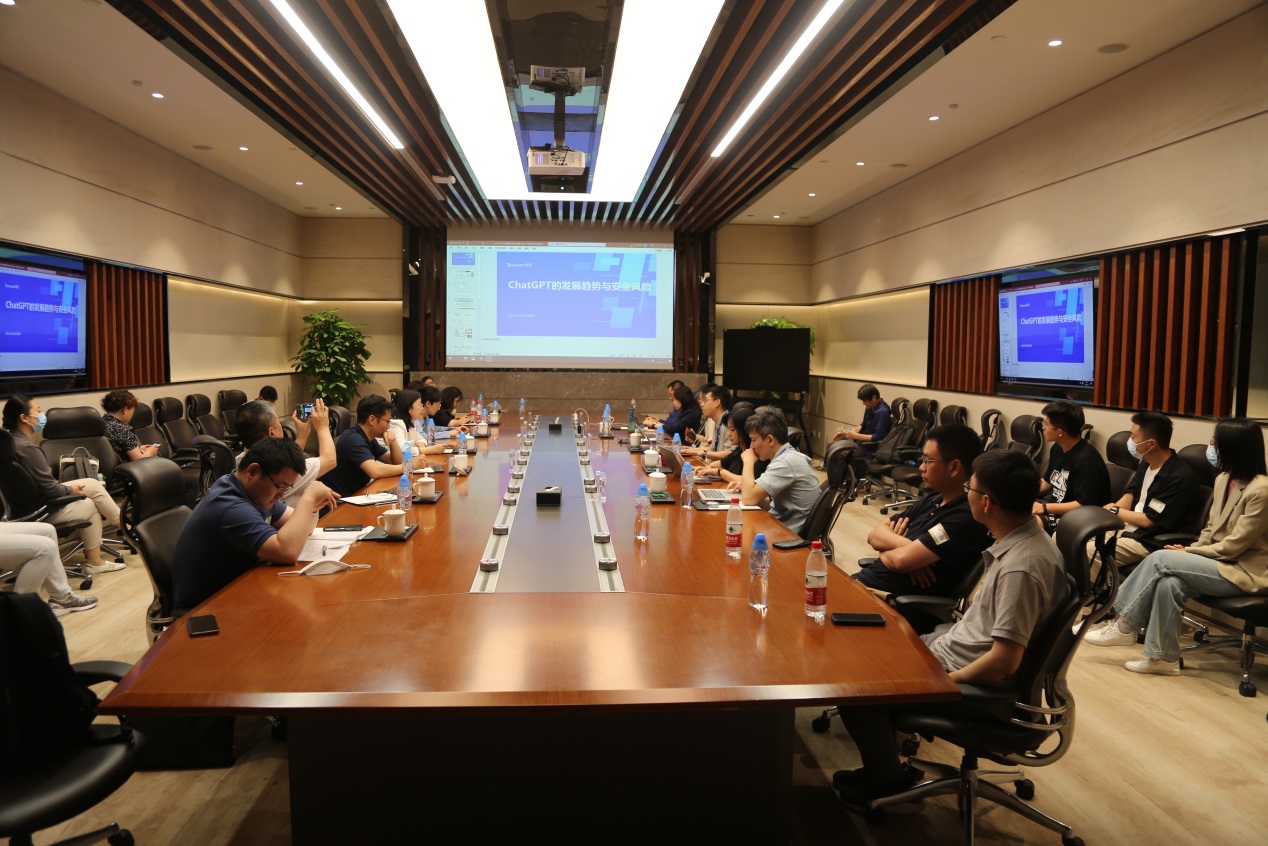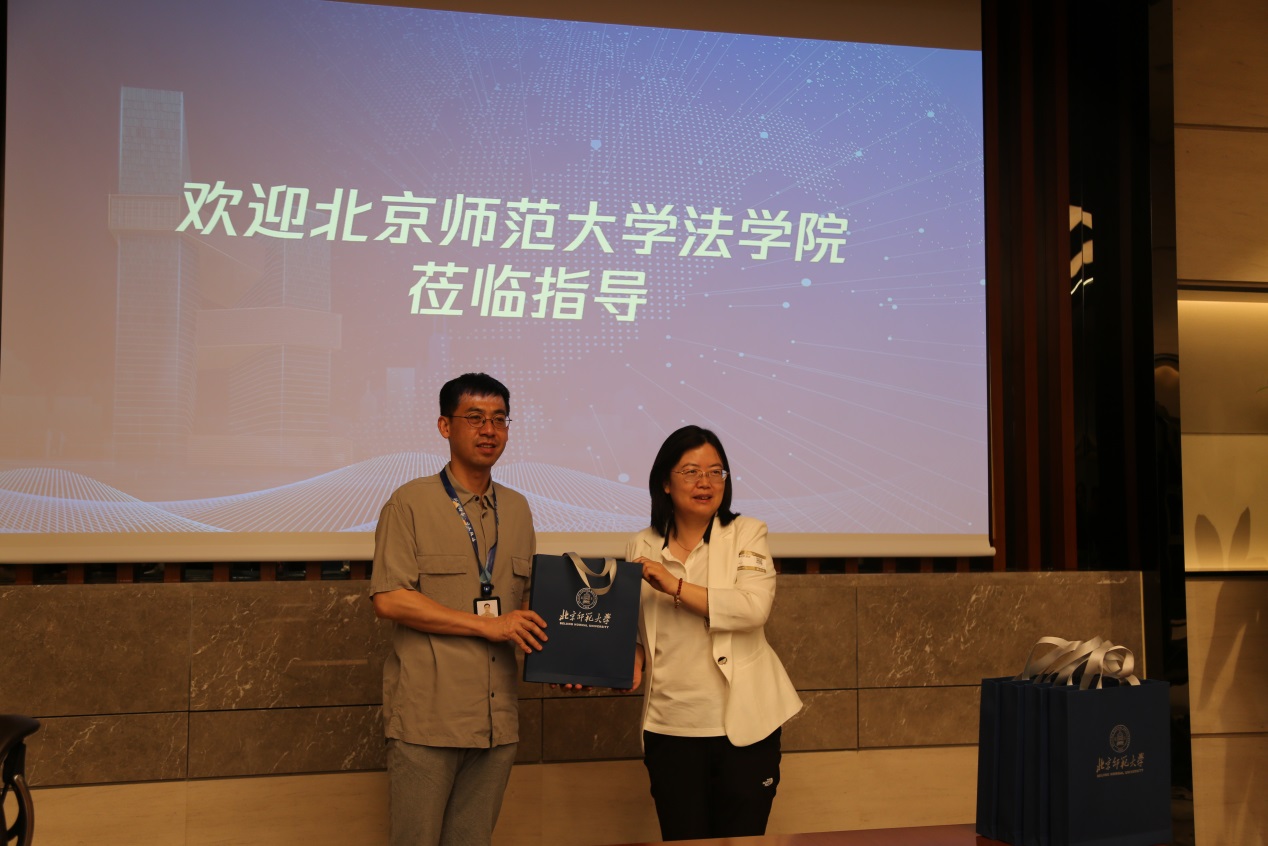
To advance the scholarly exploration and practical application of the theme education centered on Xi Jinping's socialism with Chinese characteristics for a new era, and to strengthen the unity among the faculty, the Party Committee of the Law School arranged for over 30 educators to tour the Beijing headquarters of Tencent on the afternoon of June 2. The visit was attended by the Party Secretary, Chai Rong, the Vice Presidents He Ting and He Dan, as well as the Deputy Party Secretary, Guo Yating.
The teacher team first visited the exhibition hall of Tencent's Beijing headquarters. The tour guide started with various products closely related to people's daily lives, such as QQ, WeChat, Tencent Meeting, etc., introducing Tencent's development history and future prospects to the teachers, and deeply interpreting Tencent's business philosophy of putting science and technology first and benefiting humanity.

Subsequently, an exchange session was conducted on the themes of "Protection of Minors" and "Development of ChatGPT." The meeting was attended by Ren Yuchen, Deputy Director of Tencent's Security Law Department, Chen Lei, a Senior Expert in the same department, and Senior Researchers Zhang Na, Zhou Yang, and Li Junjie. Zhang Na presented an in-depth overview of Tencent's specialized initiatives for safeguarding minors' online gaming habits, with a keen focus on child protection. Through measures such as restricting gaming time and financial transactions for minors, and regulating gaming platforms, Tencent ensures comprehensive safety for young users. The company has also implemented a youth mode in its chat applications to shield minors from potential exploitation by strangers and constructed a robust information security barrier. This barrier not only filters out harmful content but also promotes the dissemination of engaging and beneficial information to minors. Chen Lei then delved into the evolution and technical underpinnings of artificial intelligence, offering insights into the future trajectory and trends of ChatGPT technology. He also highlighted that the misuse of emerging technologies for criminal purposes does not necessitate sophisticated technology; even a modest success rate can entice individuals to engage in risky behavior. Chen Lei illustrated this point by sharing a recent case of online fraud involving ChatGPT, underscoring the security challenges posed by the advancement of ChatGPT technology and emphasizing the critical need for the standardized and responsible application of artificial intelligence.

He Ting commended Tencent's efforts in the realm of minors' online protection, expressing confidence that the remote authorization feature for guardians in Tencent's chat software youth mode would significantly enhance the safety of minors in cyberspace. He looked forward to Tencent pioneering a new paradigm for parent-child communication in the digital arena.
Regarding data security, Shang Haowen opined that the existing criminal law provisions concerning data crimes are somewhat behind the times and require updating. He suggested that, while maintaining the bottom line of data security, regulatory measures should be adjusted to allow for greater corporate flexibility through compliance, moving away from a punitive approach to foster the advancement and utilization of big data technology.
Wu Zongxian expressed appreciation for Tencent's user-friendly services and highlighted two key security considerations that the company should address in its growth: the security of user information, with the emphasis on protecting the vast data generated by features like facial recognition and verification codes from falling into the hands of criminals; and the safety of product usage, such as ensuring the technological integrity of autonomous driving systems.
In her closing remarks, Chai Rong extended gratitude to the team at Tencent's Beijing headquarters and anticipated future opportunities for exchange and collaboration between the two institutions. To commemorate the occasion, she also presented souvenirs to the Tencent staff.

This event has fostered closer communication and collaboration between the Law School of Beijing Normal University and Tencent, with all the participating faculty members reporting rich insights gained from the experience. The Law School's educators, while engaged in legal research, have proactively answered the call for lawfulness through concrete actions. They are conducting practical initiatives that align with the discipline's unique attributes, thereby advancing the sustained progress of teaching and research endeavors through hands-on engagement.
